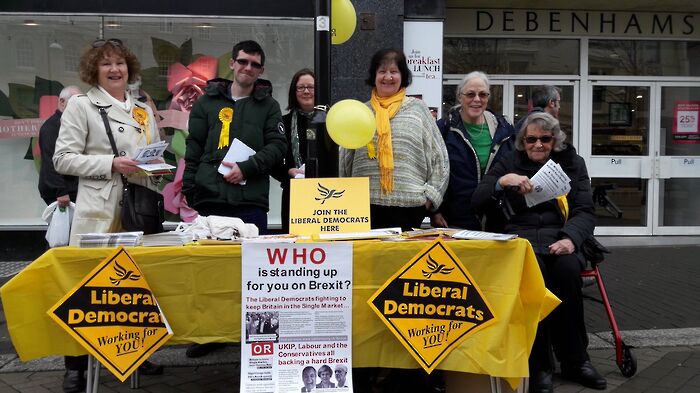Was Brexit an outcry from the victims of globalisation?
People are frustrated with the economic system, and Brexit is not the only consequence of their anger, argues Tom Nixon

Brexit represents a move against a global order that most commentators previously took for granted. The Brexit vote, along with other developments such as the election of more reactionary politicians like Trump in America, is a sign that there is a deep-seated mistrust of an economic model that has existed for three decades.
A system that was supposed to raise everyone up on a tide of increased welfare has failed the poorest in our society. Some commentators went as far as to say that globalisation would be the end of the nation state, that the illogical division of people into territorially defined areas would be overwhelmed with a wave of prosperity. If anything, the political movements we are currently seeing globally show a rejection of the free movement of people and capital.
“Brexit was a symptom of the disillusionment, not just with the EU, but with the wider global economic order”
The EU was supposed to shield people from the untrammelled brutality of market forces. The claim was the nation state could no longer provide adequate protection on its own and that a larger international grouping could. It is, however, increasingly clear that the EU has failed to live up to those expectations and that people are looking to the nation state to save them.
Free movement of people and capital within the EU has led to certain sections of society feeling left behind as wage rates in richer countries are depressed. Regardless of whether you believe that economic integration and further globalisation is the key to improved economic welfare, it is clear that the voting consensus does not.
The backlash has resulted in the rise of parties on both the left and the right. The mantra is that a small, metropolitan elite has benefited from the system whilst the ordinary man has been left behind. Since the crash, the rising inequality between the rich and poor has created much resentment. Wages have stagnated or risen very slowly whilst the stock market has boomed.
In a recent study of 46 major economies by Credit Suisse, it was found that prior to 2007 wealth inequality was on the rise in 12 countries. Since 2007, that number has increased to 35. In London the number of billionaires is also up and the city has come to represent the globalised elite that many people have come to despise.
But perhaps one could claim that in Britain the backlash was due to the policies of austerity by the current Conservative government. This may be an appealing thought to some, suggesting that what people really want is a change to a more left-wing government, and that they just don’t know it. But this patronising argument ignores the trends across Europe that show a swing in popularity towards the reassertion of the nation and national controls.
A 2016 poll conducted by ComRes shortly after the referendum demonstrates the suspicion many people have for globalisation. When asked whether they believed wages had been deflated because of the global trend, 49% agreed and only 23% did not. On whether it had led to more inequality between rich and poor, 51% agreed and just 21% disagreed. Globalisation is for many people a toxic term and there are large sections of society that feel left behind.
This poses an interesting question for European politicians: do they continue the march towards ever closer union or try to accommodate this swing against internationalism? The signs show that they intend to carry on the mission set by the Treaty of Rome in 1957. Politicians like Macron still believe that if further integration is carried out the EU can more effectively carry out the shielding role previously assigned to nation states.
However this depends on continued support for European cooperation in a climate where politicians like Marine Le Pen can come second in a presidential race and where Eastern European countries like Poland are heading towards more extreme nationalism, not away from it.
Brexit was a symptom of the disillusionment, not just with the EU, but with the wider global economic order. There are wider implications of this rejection of globalisation that has taken place not just in Britain with the referendum, but also in Trump’s America and increasingly across mainland Europe.
While the global economic system cannot be entirely reset, we are likely to see more protectionist policies from politicians in an attempt to provide the economic welfare that used to be associated with globalisation; it the task of politicians to provide this without falling to reactionary and xenophobic posturing
 Features / Cambridge: where toxic productivity turns rest into a radical act8 April 2025
Features / Cambridge: where toxic productivity turns rest into a radical act8 April 2025 News / Rowing row continues as Oxford and Cambridge scrap women’s trial race9 April 2025
News / Rowing row continues as Oxford and Cambridge scrap women’s trial race9 April 2025 News / Under 3% of applicants for Cambridge academic jobs are successful7 April 2025
News / Under 3% of applicants for Cambridge academic jobs are successful7 April 2025 News / Uni to ‘review’ tripos rankings and weekend lectures in undergrad teaching overhaul10 April 2025
News / Uni to ‘review’ tripos rankings and weekend lectures in undergrad teaching overhaul10 April 2025 Comment / Death of the June Event?9 April 2025
Comment / Death of the June Event?9 April 2025





